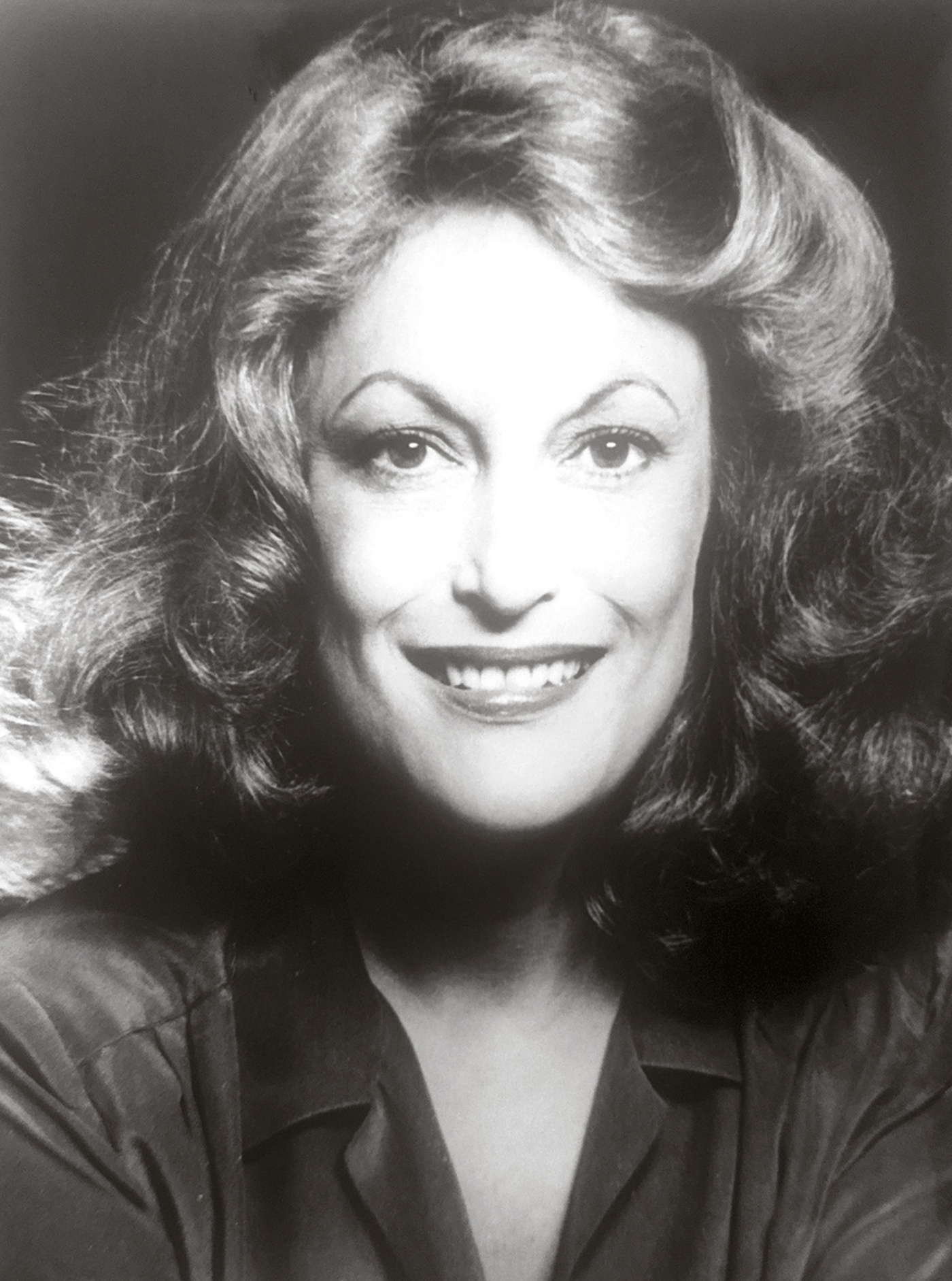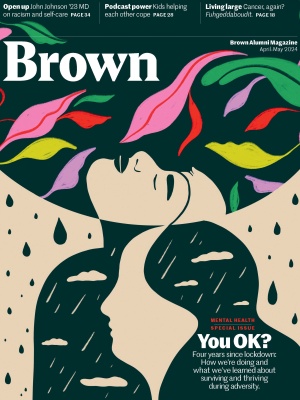Theater Dynamo
Remembering professor and director Lowry Marshall (1944-2023)
Joel de la Fuente ’91 is a successful actor, having done everything from stage plays to films to main roles in the TV series The Man in the High Castle and Law and Order. But he says his true thespian education started at Brown in the acting class taught by Lowry Marshall, a Southern-bred actor and director who, in the mid-late 1980s, had only recently arrived in Providence from her last post at UNC-Greensboro—but quickly made her mark with students.

“The class of 1991 had more theater concentrators than any class in the school’s history” recalls de la Fuente, “and getting into Lowry’s class was a surefire way of defining yourself as a theater person.” He says that Marshall, in her forties and a woman, “stood out as a huge contrast in a stodgy, mainstream theater department. She had actually been a professional actor, not just an academic. She had lived the things we all dreamed of. Her loud Southern twang stood out in the New England setting. For someone so petite, she was a dynamo of energy, a strong woman who spoke her mind and laughed loudly.”
At a time when Brown’s student actors of color often met resistance from professors when they demanded nontraditional casting to more broadly participate in theater department plays, Marshall, in 1990, cast a racially diverse troupe to appear in Romulus Linney’s Holy Ghosts, about a misfit congregation of Appalachian Pentecostal snake-handlers. She cast de la Fuente, who is Filipino, as the lead. “Being entrusted by her to be the center of this Southern play, with a Southern director, was a stunning gift, a remarkable opportunity,” he recalls. “The school may have talked about diversity, but Lowry walked the walk. She entrusted me to help tell her story. She presented boldly to the world and encouraged me to be bold with my dreams.”
De la Fuente is now just one of countless alums of both Brown undergraduate theater and its MFA partnership with Trinity Rep and RISD, which Marshall cofounded in 2002, who are mourning her loss. Marshall, who retired from Brown in 2014, died at 79 on Oct. 8 in Tarzana, California, surrounded by her family, including her longtime partner Alex Daunis, after a four-year battle with brain and lung cancer.
“She outlived her prognosis by four years,” says actor Logan Marshall Green, one of two sons (the other is Taylor) whom Marshall raised alone, largely in Providence, while teaching, directing, and creating a variety of theater programs at Brown. When she started at Brown, he says, “She had all the eight a.m. classes, so we had a lot of morning stress, but she still got us to school every day on time and taught us to be good humans while doing more at Brown than ten other professors combined.”
Indeed, what Marshall accomplished in her 28 years at Brown and then Brown/Trinity is remarkable—not only carrying a course load and directing dozens, if not hundreds, of plays, but starting a festival for solo performance and reviving Brown’s summer theater festival by featuring and directing original work by Brown playwrights, including Speech & Debate by Stephen Karam ’02, which went on to off-Broadway and became a college production favorite.
“She used her creative gifts and muscle to take risks and produce new work at a high level,” says Karam, whose 2016 Broadway hit The Humans won the Tony for best play. “She’s a major reason I’m still writing today. Mounting a summer season of new plays is a heroic undertaking, and she did it with flair, joy, and consummate skill. She was giving us real professional experience, boosting a generation of artists into the next stages of their careers.”
This writer, who was not a theater major but acted in her production of Holy Ghosts, remembers her as a funny, theatrical, larger-than-life presence whose shrewd, effective, inventive, and down-to-earth directing style was a breath of fresh air in a department, and on a campus, that was often heavier on theory than concrete skills. For that play, she brought an African drummer to rehearsal and had us enact an actual ecstatic ritual so that the scripted ecstatic climax at the play’s end would feel raw and authentic rather than staged. The exercise was terrifying to me—but it helped bring the show to a conclusion that left the audience truly stunned.
I also remember her counsel on how to play Tennessee Williams, a playwright she adored. “It’s gotta be naturalistic,” she intoned in her fabulous drawl, “but also bizarrrrro.” That’s why, says Logan, Camino Real was her favorite Williams play—because it was among his most surreal.
Theater professor emeritus John Emigh remembers being on the hiring committee to fill the position left by the retiring J.O. Barnhill—and exhaustively “auditioning” ten candidates as acting teachers before finding Marshall. “She was very good at knowing how to fix a scene and at how to draw a lesson [that could benefit the entire class] from a specific critique to a student,” he recalls. “She could make a very acute observation about how to improve something but also had a way of complimenting students that gave them confidence.”
“I was in the first acting class she taught at Brown,” recalls Beth Wishnie ’89, a Broadway producer. “She pushed me to discover emotional and even physical parts of myself I didn’t know existed.” After Brown, “she became a friend and mentor. Whenever we visited, including when she was in hospice, she remembered every show I worked on at Brown and recalled moments from shows she did with students from her very first years on campus. She never stopped being the hilarious, encouraging, loving Lowry we will miss terribly.”
Wishnie says that she and other former Marshall students hope to celebrate her at Brown during Reunion Weekend 2024.





